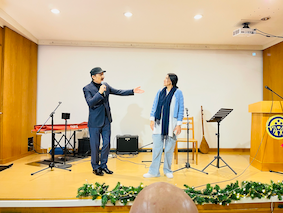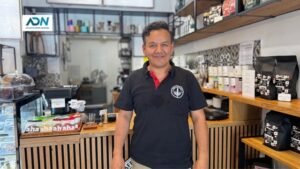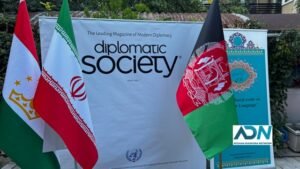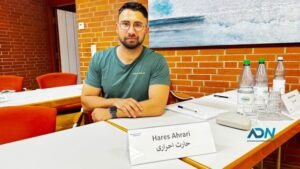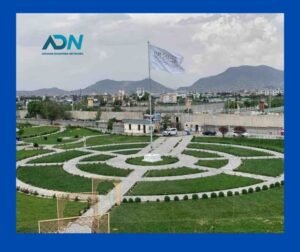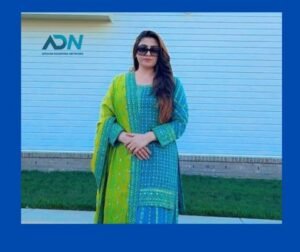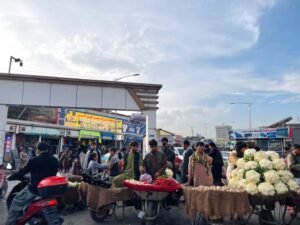From Laghman to Melbourne: Zahid Safi’s Journey from Refugee to Political Voice
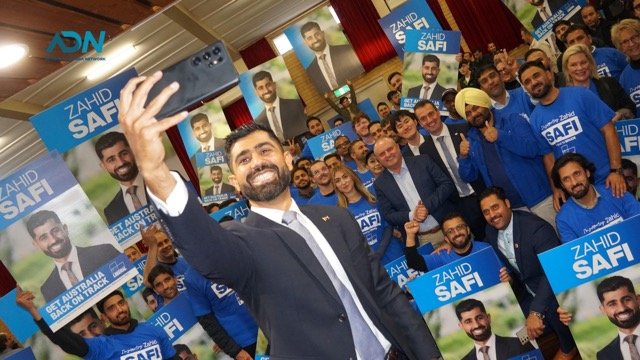
Zahid Safi, an Afghan-Australian, during his election campaign in the state of Victoria.
By Wakeel Attock
Zahid Safi remembers the long road that brought him from the hills of eastern Afghanistan to the suburbs of Melbourne. “I am one of millions of Afghans who had to leave home because of war,” he says.
“I went to primary school in Peshawar, then moved to Europe. In 2010, I migrated to Australia—and I’ve lived here with my family ever since.”
Safi is part of a growing Afghan-Australian community shaped by displacement but grounded in resilience. He now runs a small business and plays an active role in politics—something he never imagined when he first arrived. “At the beginning, politics wasn’t even a thought,” he says. “But things changed.”
Safi is quick to praise what he found in Australia: opportunity, community, and freedom.
“Social life is very strong here,” he says. “Afghans value connection, and in Australia, we can meet, celebrate, speak our languages, and preserve our culture. We have mosques, cultural associations, and big gatherings for Eid or Afghan Independence Day. Just a few years ago, our Afghan festival brought thousands of people together.”
Part of Safi’s sense of identity is shaped by a deep respect for history—especially that of the Afghan cameleers. “Two years ago, I went to Broken Hill and met Amanullah, one of the last descendants of the original cameleers. These Afghans helped build Australia’s infrastructure in the 1800s. The Ghan railway is named after them. Australians still talk about their contributions—and it makes us proud.”
But he also notes what’s missing. “In Melbourne, there are no monuments or public spaces named after Afghans. That’s something we still need to change.”
Safi sees a difference between the cameleers’ generation and Afghan migrants today. “The cameleers came alone and often married indigenous Australians. Their children didn’t grow up speaking Pashto or Dari. But now, Afghan families are bigger. We speak our mother tongue at home. Our children grow up bilingual—and that helps preserve our identity.”
From Community Advocate to Political Candidate
Safi’s turn toward politics came unexpectedly. “In 2016, I was invited to a meeting with the Prime Minister. That meeting—and two friends I met there—encouraged me to get involved. I joined a political party, and in 2024, I was nominated as a candidate.”
That nomination made history: he became the first Afghan endorsed by a major Australian political party for federal elections. The seat he contested in the State of Victoria was considered crucial by both leading parties.
“If we had won it, we would have had a voice in federal parliament,” he says. “Unfortunately, we didn’t win. But we made progress.”
Safi believes that Afghan political participation can benefit both their new country and their country of origin. “We were born in Afghanistan, but we live in Australia. The international community was involved in Afghanistan for 20 years. Our engagement here can still influence how Afghanistan is understood—and supported—abroad.”
When asked what his political priorities would be if he were in Afghanistan, he answers without hesitation: “Security, education, and economic development. I always dreamed of working in the education sector back home.”
Though politics has become a part of his life, he still considers it a part-time commitment. “We work full-time on campaigns for about three months during elections. The rest of the year, we meet in the evenings or on weekends.”
Safi has deep admiration for leaders from Afghanistan’s history. “Ahmad Shah Baba is my political role model. He laid the foundation for Afghanistan. Amanullah Khan modernized it. And Daud Khan was another leader I respected—he built the country in many ways.”
But politics is only one way he believes Afghans can make an impact abroad. “Wherever Afghans are, they must present themselves. They need to express their own voice, their own identity—not let others speak for them. That’s how we can make change.”
He sees this philosophy reflected in sport, particularly cricket. “Cricket connects us to Australia. Afghan players like Rashid Khan, Mohammad Nabi, and Mujeeb have played Big Bash League. They’ve shown the world another side of Afghanistan—a positive one.”
In fact, Safi recently met with the head of Australia’s cricket board to advocate for more engagement with Afghanistan Cricket National Team. “I asked why Australia won’t play Afghanistan. Politics should not mix with sport. Cricket gives hope to Afghan youth—it’s a form of soft diplomacy.”
Back in Australia, Safi is active in his local mosque, which has over 3,000 members. His children attend Islamic schools in a neighborhood that offers both public and private education. “We have what a community needs: mosques, cultural venues, even graveyards for Muslims and Afghans. The municipality provides land at affordable prices.”
Despite all that he has accomplished, Safi remains focused on the bigger picture: preserving Afghan identity, building representation, and bridging cultures. “We belong to both places,” he says. “We must give back to both.”
Afghan poet Wakeel Attock previously served as the director of culture for the eastern provinces of Laghman and Nooristan.
Note: The contents of the article are of sole responsibility of the author. Afghan Diaspora Network will not be responsible for any inaccurate or incorrect statement in the articles.



